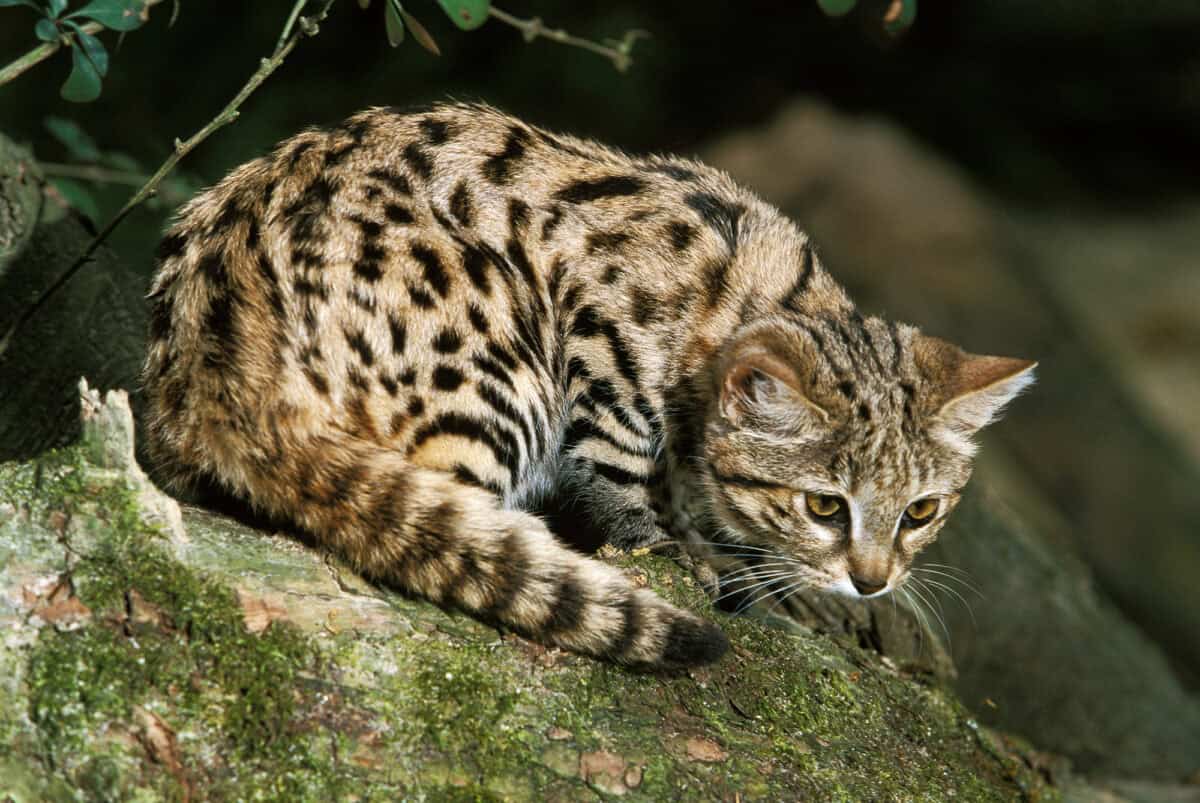This kitty may resemble a typical housecat, but she’s actually a deadly wildcat found on the plains of the African savannah.
Introduction
This black-footed cat is named Gyra, and she’s being tracked by researchers by means of a radio collar and night-vision cameras.

Despite her small size (1–2.5 kg or 2–5.5 lb), she is an expert nocturnal hunter. She preys on rodents, locusts, small birds, and the Cape hare, which is notably bigger than her. Amazingly, the hunting success rate of black-footed cats is approximately 60%, which makes them some of the most lethal predators in the cat family.
How Does Her Hunting Success Compare With Other Cats?
To put a success rate of 60% in perspective, lions, who hunt in prides, have a hunting success rate of only 20–30%. Who gave them the title of king of the jungle again? This is higher still than tigers, who are only successful in catching their prey 10–20% of the time.
Leopards are solitary hunters known for their stealth and agility, and, like the black-footed cat, are nocturnal hunters. These big cats have a hunting success rate of approximately 30–40%.
It seems that the smaller the animal is, the more likely they are to have successful hunts. Caracals, which are medium-sized wildcats, are estimated to successfully catch their prey 50% of the time.

Black-Footed Cat Hunting Adaptations
Gyra’s incredible hunting success can be attributed to her specialised hunting techniques and physiological adaptations.
First, she has exceptional night vision due to the high density of rods in her retinas. Next, she has acute hearing abilities that allow her to detect the faintest of sounds made by potential prey in her vicinity. And finally, she can walk up to 20 miles (30 km) in search of a good meal and, when she’s found one, she can spring herself up in a leap to catch a bird in flight or make a surprise attack on a rodent.

Conservation
Unfortunately, black-footed cats are classified as a vulnerable species, according to the IUCN Red List. Overgrazing of livestock has reduced its hunting areas. Poisoning of locusts, which they then consume, threatens their lives. And they are often hunted by farm dogs.
Several organizations, including Felidae Conservation Fund and Wild Cats World support the conservation and protection of black-footed cats.
Conclusion
Thanks for reading! You may also like:
Join our Forum for free today!

- Glow-in-the-Dark Sharks & Other Fascinating Bioluminescent Fish - July 10, 2024
- Why Flamingos Are Totally Hardcore - July 3, 2024
- Nuclear Tech to Combat Poaching: Radioactive Rhino Horns - July 2, 2024


